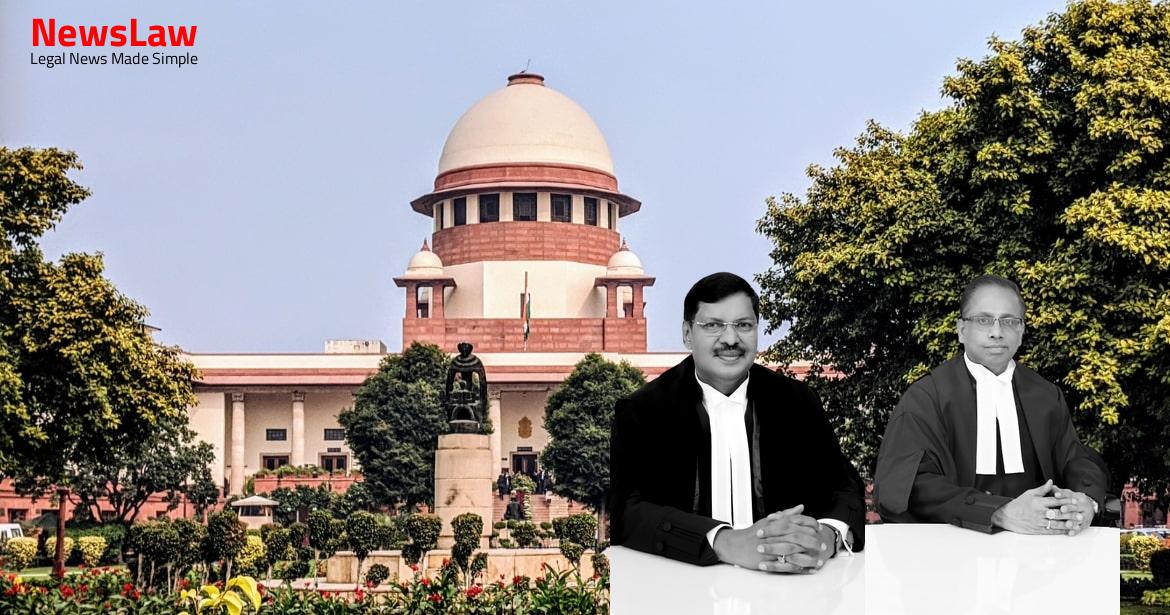Read about the recent landmark judgment by the Supreme Court of India on GMO regulations and environmental protection. The case involved crucial considerations regarding the approval of GMOs, with a particular focus on the release of transgenic mustard hybrid DMH-11. Stay informed about the legal implications and decisions made in this significant case.
Facts
- Writ Petition (Civil) No.260 of 2005 was filed seeking certain directions to the Union of India regarding GMOs.
- The directions included the preparation of a protocol for bio-safety tests, banning the import of GM products unless certified, and compulsory labeling of GMOs by dealers.
- Writ Petition (C) No.840 of 2016 sought the quashing of a notice issued by the Union of India and appropriate procedural guidelines by GEAC.
- Various applications were filed leading to the hearing of the writ petitions.
- Writ Petition (Civil) No.115 of 2004 was filed by Gene Campaign, seeking the harmonization of rules with constitutional articles and intergenerational equity.
- The plea emphasized the importance of protecting natural resources for public good and intergenerational equity.
- The doctrine of intergenerational equity was highlighted as crucial for preventing erosion of resources for private or commercial use.
- The writ petitions have been pending since 2004 and 2005, addressing the issue from multiple perspectives.
- The approval for environmental release of Dhara Mustard Hybrid-11 (DMH-11) mustard by GEAC is a key aspect being scrutinized.
- The approval is being questioned for compliance with TEC recommendations, adherence to due process of law, violation of the right to a safe environment, and the precautionary principle.
- The petitions advocate for protecting genetic resources and rural and tribal communities’ rights to access them, involving a diverse group of professionals.
- The approval by GEAC in October 2022 has triggered the consideration of these writ petitions on merits.
- Consensus on constitution of an Expert Committee with specific terms of reference
- Non-adherence to protocol of Level of Detection of 0.01 per cent led to ban on Bt brinjal
- Dismissal of appeal by the Appellate Authority
- Recommendations by the Expert Committee regarding usage of herbicide and transgenic Bt hybrid cotton varieties
Also Read: Service Tax on the Sale of Lottery Tickets: Supreme Court’s Landmark Ruling
Issue
- The issue at hand is whether the conditional approval of DMH-11 by GEAC is vitiated by arbitrariness, delegation, non-application of mind, or any other principle of law.
- The key consideration is whether the GEAC approval and subsequent decision for the environmental release of DMH-11 on 18.10.2022 and 25.10.2022 respectively align with legal standards.
- A central question is whether the decision to grant approval for the environmental release of DMH-11 conflicts with the right to a safe and healthy environment under Article 21 of the Constitution.
- The court is tasked with determining whether a complete ban on Ht crops is justified from a precautionary principle perspective, or if alternative directions are more appropriate.
Also Read: Mistaken Bid Rectification Case: Balancing Equity in Tender Matters
Arguments
- The Attorney General defended the action of GEAC, stating the importance of credible regulatory procedures and transparency in the approval process of GMOs.
- The petitioners sought precautions before releasing GMOs into the environment, specifically addressing the approval of transgenic mustard hybrid DMH-11.
- Concerns were raised about the lack of transparency, violation of legal mandates, and insufficient consideration of stakeholders in the appraisal process of transgenic mustard hybrid DMH-11.
- The Union of India argued against intervention in the matter, citing technical complexities and the existing statutory framework for GE technologies.
- It was pointed out that the regulatory system was deficient, and there was a need for an effective regulatory mechanism within the existing framework.
- Reference was made to questions raised in the Rajya Sabha regarding the release of transgenic mustard DMH-11 hybrid, highlighting the need for scrutiny and oversight.
- The petitioner emphasized the disregard of the TEC Report by GEAC and requested implementation of the TEC recommendations.
- Comparative inadequacy in testing and consultation processes for GM mustard was highlighted, along with concerns about fairness and transparency in the public consultation process.
Also Read: Stamping Standards Upheld: B. Ramesh Hegde v. Praveen Shetty
Analysis
- The Specific part of the judgement deals with rules and regulations related to genetically engineered or modified food, organic food, proprietary and novel food under the Food Safety and Standards Act.
- It also includes definitions related to genetically modified organisms obtained through biotechnology, organic food products, and proprietary and novel food items.
- The section specifies conditions like not claiming to cure any specific disease and not including narcotic drugs or psychotropic substances in the defined products.
- It highlights the importance of protecting and improving the natural environment, including forests, lakes, rivers, and wildlife.
- The rules also cover the powers and procedures of the Genetic Engineering Approval Committee, revocation of approvals under certain circumstances, and penalties for non-compliance.
- The Act outlines the central government’s powers to issue directions, approve certain food items, and regulate risks associated with genetically engineered organisms.
- Several sections of the Environmental Protection Act, 1986 are referenced to emphasize the protection of the environment, prevention of pollution, and handling of hazardous substances.
- Additionally, the roles of various committees and laboratories established for environmental protection and genetic engineering are highlighted.
- The rules also mention the powers of entry, inspection, and sampling provided to government authorities for monitoring environmental concerns and enforcing regulations.
- The role of the government in executing a project is to be determined by the government itself.
- Courts should intervene only if the system put in place by the government for project execution is arbitrary.
- The court’s role is to ensure that the system works as intended when it is not deemed arbitrary.
Decision
- Contempt petitions closed in specified terms.
- Writ petitions dismissed and disposed of based on the judgment.
- Applications related to the matter also disposed of.
- Directions issued considering Fundamental Rights and Directive Principles of State Policy.
- Civil appeal also disposed of as it does not require further consideration.
Case Title: GENE CAMPAIGN . Vs. UNION OF INDIA (2024 INSC 545)
Case Number: W.P.(C) No.-000115-000115 – 2004



